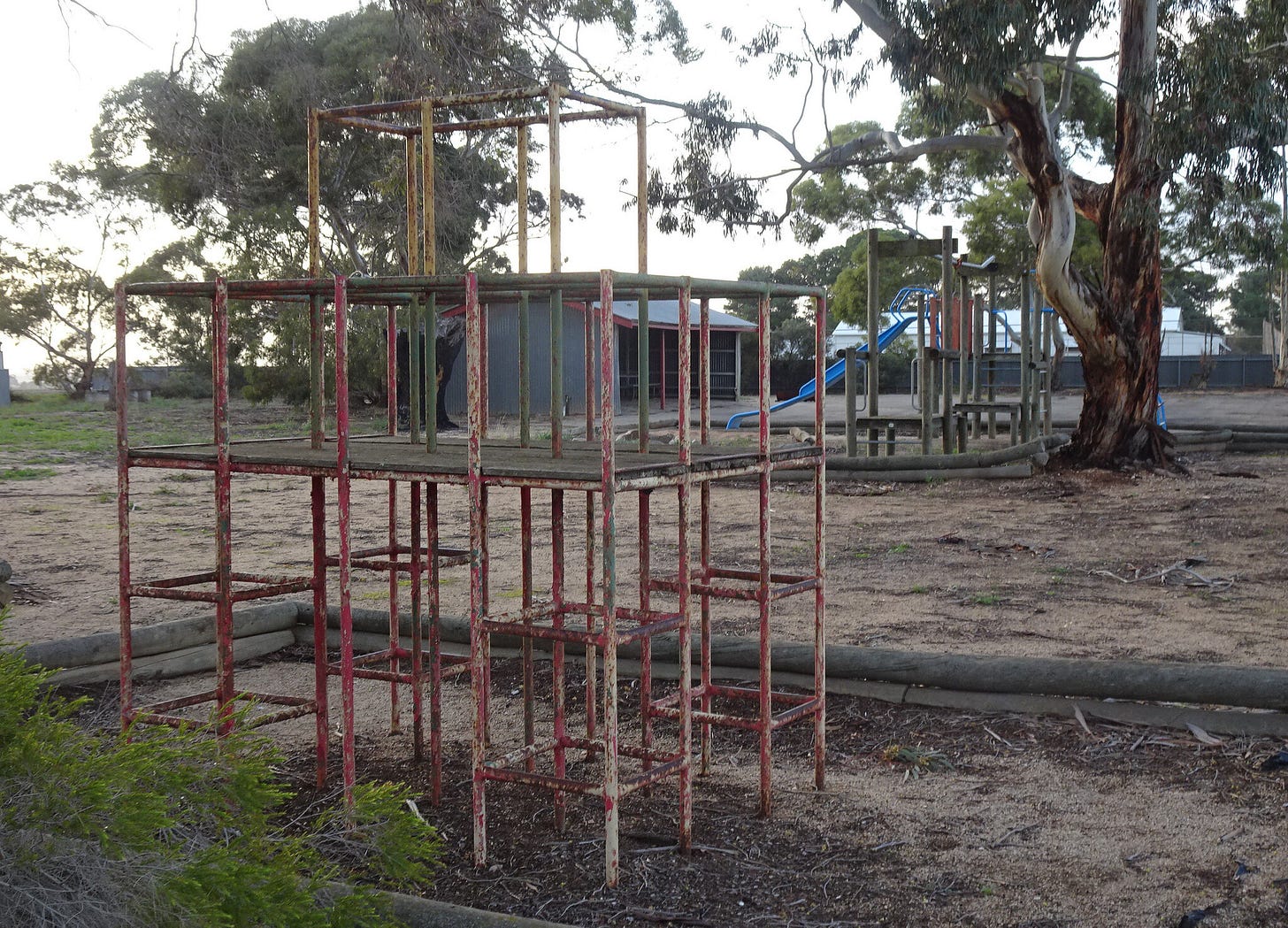October 1 will forever be The Day We Moved Into Our New House—even though that was the house in Chicago where I grew up, and that particular day was in 1972.
When my mom and dad got married, my mom was thirty-six, and she knew she wanted to have a baby right away. They chose an apartment building on a city street, lined by giant elms, with a playground right at the end of the block. My mom soon found she wouldn't be able to have any more kids. Fortunately, our building plus many others plus the playground formed an urban village where kids and families mingled.
I'm pretty sure my mom didn't want me to grow up very differently than kids with siblings. She mixed me in with as many kids as she could find, put me in various lessons and Scouts—though lessons and Scouting never suited me—and she let me have friends in and out of our apartment (and later our house) as much as I wanted. And, most interesting to me today, she gave me K-Tel rock music compilations when I was about eight. Almost thirty when the earliest rock hits were produced, she was also religious and had had a rural upbringing. She basically was demographically incapable of being a rock-music fan. But she didn't want me to be left out of what kids liked.
Our new, brick house—new to us, though fifty years old then—was, like the apartment building we'd moved out of, on a side street just east of Ravenswood Avenue and its elevated railroad tracks. The tracks were (and are) on a grassy embankment, like a sloped bit of prairie remnant, with wildflowers like milkweed full of monarch caterpillars and other interesting bugs. Back then, even in Chicago, butterflies, moths, dragonflies, bats, and fireflies (I think we called them lightning bugs) were plentiful.
Kids from the building tagged along to the new house on October 1, and we all played hide and seek, finding crannies to explore in the basement behind the bar, in the boiler room, in the cramped pointy-ceilinged attic, and in the main floor closets that were still empty. I thought I would often walk the three blocks to the old building because the playground on the next corner was the center of Kid Universe then. My friends were mostly my age and a bit younger, so the boxy steel jungle gym, the monkey bars, and the swings—plus the gravelly, dusty expanse of the playground itself—still compelled me. I didn't want to lose the calluses on my palms and I didn't want to lose touch with the gang of kids there.
But winter came, and I made new and close friends on the new block and in my new third grade class, and I easily found my place in the life of the sixteen houses on our block.
Fast forward to age thirteen: my mother had died almost two years earlier. A boy my age whom I'd known in the apartment building moved out of state at the beginning of the school year. I had not stayed close to him; we didn't even go to the same school. I decided, though, that this boy (living thousands of miles away now) was supposed to be my first boyfriend; I seemed to decide to be heartbroken about his departure. I even wrote to him, confessing my feelings. He responded, with kindness I'm still grateful for, stating that he wasn't going to be my long-distance first boyfriend.
It was so strange in later years to remember the feeling of making a decision about how to feel about him, to decide I "loved" him (when by that point I barely knew him), and then also to remember that my feelings became real. I missed him, I continued writing to him (without continuing to declare my feelings), and then poof, after six months or so my feelings were gone. He disappears from my journal at that point.
What was I doing when I decided to have feelings for him? I've made sense of it by seeing that he and his family represented a link to my life when my mom was healthy. His mom and my mom had been friends, and he and I had been part of the playground gang, and now my mom was gone and so was he. (Now, I see lots of the grown-up kids from that building interacting on Facebook, and I feel sad again because they share group memories that I don’t.)
I had lost my mom, and with her I had lost my connections to the old apartment building and my friends there. At eight when we moved I took for granted I'd always stay connected. At eleven when my mom died I had a half-unconscious faith that "we"—everyone I'd known through my mom—would all be together again someday. I think that age thirteen, when the boy moved away, was the time when I realized that that togetherness was never going to be real. I think that by letting myself mourn the boy's departure, I turned on a thin spigot of grief that was actually about my mom, maybe relieving some pressure of feeling.
I've been intrigued by remembering the boy's kind rejection—so gentle that it took me several readings to understand he was saying "I'm not going to be your boyfriend." Did his mom help him with what to say? At the time, I thought she must have. And I felt bitter: he had a mom to help him talk to a girl. I had declared myself to him alone, not telling a single soul until about four decades later.





The writing here is so good, Fran. I could almost see the boyfriend-not-boyfriend, even though you didn't describe him and the playground.